Some Kind of Grace by Robin Jenkins
Posted in Reading Reviewed, Scottish Fiction, Scottish Literature at 12:00 on 5 October 2025
Polygon, 2004, 230 p, plus 4 p Introduction by James Meek. First published 1960.
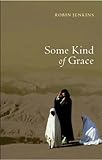
Like Dust on the Paw, this is a fruit of the author’s time in Afghanistan, and paints a portrait of the country in the late 1950s, some of its people yearning for modernity but with pockets of utter poverty in its most rural areas.
Our viewpoint character is a Scotsman only ever named as McLeod, a diplomat between posts, returned to Afghanistan after a time away. In his previous term there he had formed an attachment to Karima, an Afghan woman he had thought to marry. However, he did not own the many thousands of sheep her father deemed necessary in a prospective son-in-law.
He is interested in the fate of a former friend, Donald Kemp, who has gone missing along with his female companion, Margaret Duncan. The authorities are anxious to convince him they were both murdered: indeed, a village has been punished for the crime, with two of its men in jail in the city awaiting execution. McLeod has his doubts and, against the wishes both of the authorities and the diplomats sets out to see whether the pair are still alive. In the village concerned he finds, “as everywhere in this country, a mixture of pathos and sinisterness.”
A local Commandant confides in him and in their conversation compares the Bible and the Koran. “‘Everything is in it that suits you. If you wish to kill your enemy, search through the pages, and you will find sanction. If you wish to forgive him and love him like a brother you will find sanction for that too. A man takes his choice of what God advises.’”
About the human condition McLeod thinks, “No wonder the Koran and the Bible, advising human beings, had to give such contradictory advice.”
Despite being set in Afghanistan this is unmistakably a Scottish novel. On the journey McLeod’s thoughts compare the landscape to parts of Scotland such as Edinburgh Castle and the mountains of Wester Ross, he thinks of a local headman as glaikit, hears a voice call to him in Gaelic, and also remembers Margaret Duncan’s parents referring to the bad fire.
Yet its conclusions and themes are universal.
(There are occasional references reflecting the times it was written, one boy at a school is “slant-eyed,” another “hooknosed, Semitic.”)
Pedant’s corner:- In the Introduction; Jenkins’ (x 3, Jenkins’s.) Otherwise: brief-cases (briefcases,) basket-ball (x 2, basketball,) Chiang Kaishek (usually written Chiang Kai Shek,) “he had to breath …. through his mouth” (breathe,) “hair-pin bends” (hairpin.)
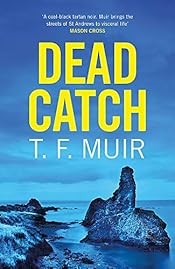
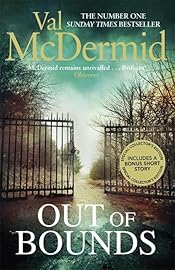
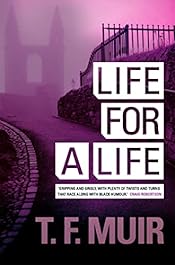

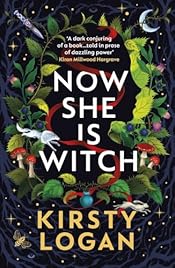 Lux was brought up by her mother in a house by the forest. Her mother was a healer and maker of poppets and possets, subject to suspicion because her baby had arrived suddenly with no man on the scene. Her mother gone, and Lux returned to the house after a sojourn in a sanctuary subject to strict religious rules, she is living alone when a woman, Else, arrives seeking her help to poison the local lord “‘who calls women witches so that he has an excuse to kill them.’” That same night Lux’s house is attacked by some of the local boys. They are driven off by a wolf, which may be Else in transfigured form, but not before the house is set on fire. Lux and Else set off together into the forest. The rest of the tale follows both – but mainly Lux – until she eventually finds employment in the lord’s castle, with Else tending to the herb/poison garden, and their misadventures there. I note here that Logan attributes to the lady of the manor more agency than a woman in her situation is likely to have had.
Lux was brought up by her mother in a house by the forest. Her mother was a healer and maker of poppets and possets, subject to suspicion because her baby had arrived suddenly with no man on the scene. Her mother gone, and Lux returned to the house after a sojourn in a sanctuary subject to strict religious rules, she is living alone when a woman, Else, arrives seeking her help to poison the local lord “‘who calls women witches so that he has an excuse to kill them.’” That same night Lux’s house is attacked by some of the local boys. They are driven off by a wolf, which may be Else in transfigured form, but not before the house is set on fire. Lux and Else set off together into the forest. The rest of the tale follows both – but mainly Lux – until she eventually finds employment in the lord’s castle, with Else tending to the herb/poison garden, and their misadventures there. I note here that Logan attributes to the lady of the manor more agency than a woman in her situation is likely to have had.
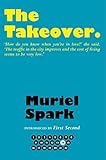 Some people swear by Spark. For myself I struggle to see what the fuss is about. There is just something about her writing that strikes me as off.
Some people swear by Spark. For myself I struggle to see what the fuss is about. There is just something about her writing that strikes me as off. This is another of
This is another of  Edwin Muir is better known as a poet but he wrote three novels of which this is the third.
Edwin Muir is better known as a poet but he wrote three novels of which this is the third.